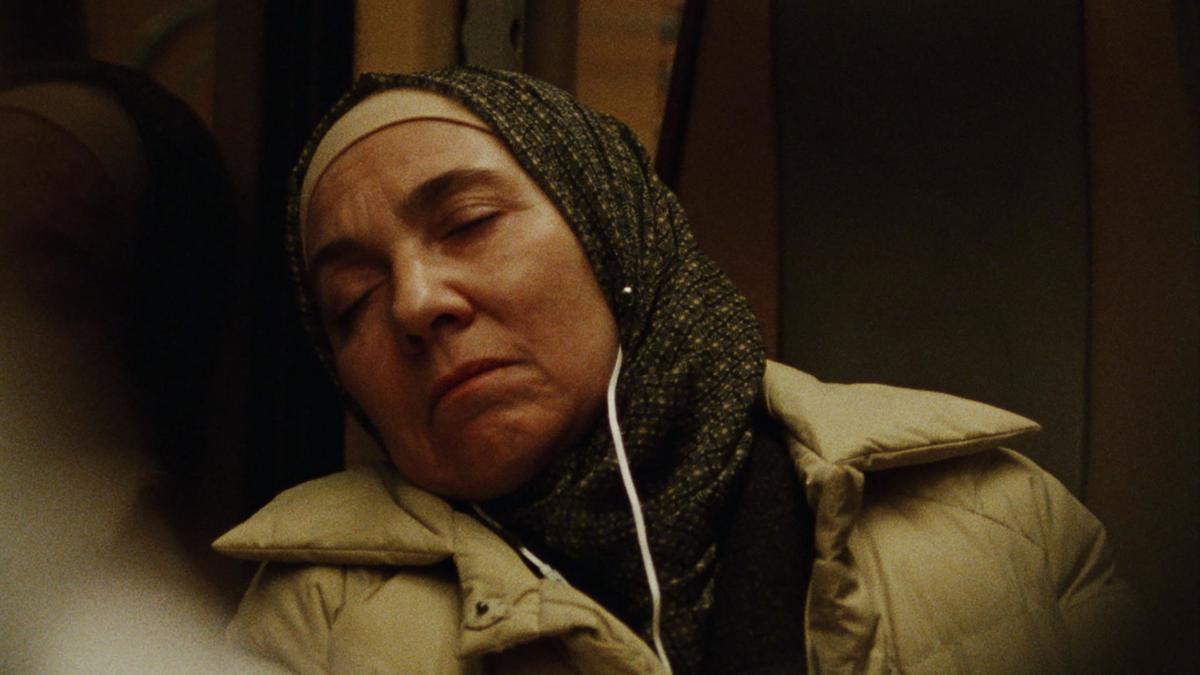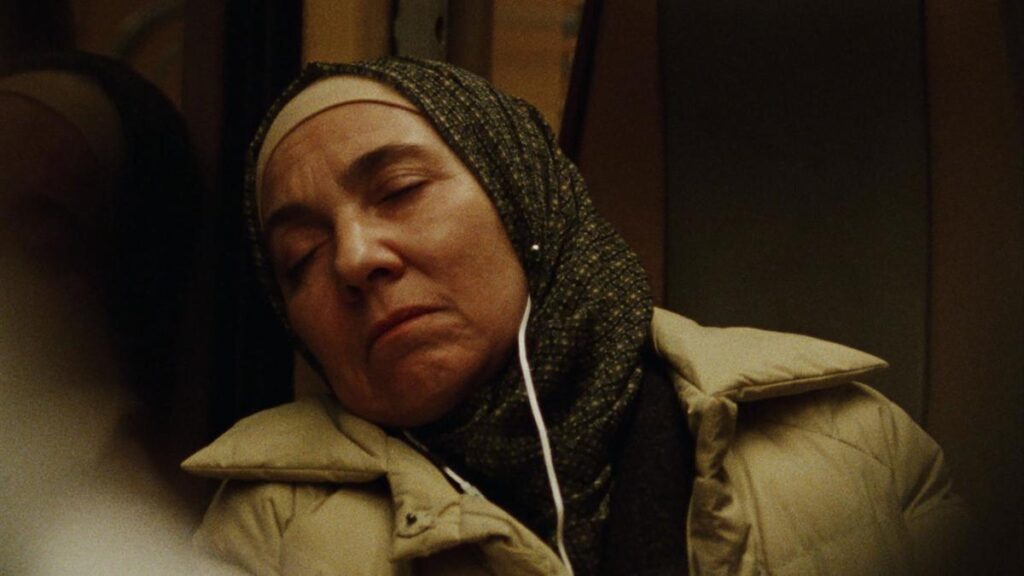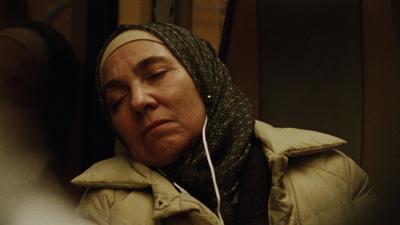Think of Baz Devos’ “Ghost Tropic” as both a cousin of Martin Scorsese’s 1985 comedy “After Hours” and its exact opposite. In Scorsese’s film, a meek New York City office worker spends the night getting into one comic misadventure after another trying to get home.
‘Ghost Tropic’ takes a long, moving journey into the night

A cleaning woman in Brussels (Saadia Bentiaeb) encounters various characters in her long walk home from work in “Ghost Tropic.”
CINEMA GUILD
In Devos’ film, a Brussels cleaning woman falls asleep on the train ride home and ends up on the other side of town. But while “After Hours” was a frenetic black comedy, “Ghost Tropic” is a minimalist, moving journey across a sleeping city.
“Ghost Tropic” is this week’s film in the Madison Museum of Contemporary Art’s Spotlight Cinema series. Viewers can register to get a link to watch the film online for one week, starting at 7 p.m. Wednesday. The link is free for museum members, $5 for all others.
Khadija (Saadia Bentaieb) is a middle-aged woman of Maghrebi origin who cleans offices at night, hard work that she doesn’t seem to mind. Taking the last subway train home, Khadija dozes off and wakes up at the end of the line. She tries to call her son for a ride, and then a cab, but ultimately decides to trudge home on foot.
It’s a journey that requires much patience on the part of the viewer, as much of “Ghost Tropic” is scenes of this nondescript woman walking the streets of Brussels. Devos shoots in 16mm film, giving the night scenes a grainy quality while making the streetlights and lighted signs luminous against the dark. There are shots that appear to be devoid of people, until Khadija emerges out of the shadows.
Walking the streets, Khadija encounters a broad cross section of night workers — security guards, convenience store clerks, night-shift nurses, a bleary-eyed network of humanity. Khadija occasionally entangles herself in their lives, such as getting help for an ailing homeless man, and then moves on.
Once the viewer is attuned to the film’s contemplative rhythms, we find ourselves feeling a growing empathy for this woman. We sense her kindness and her exhaustion through these encounters, and the charity she draws out in others, such as a gas station attendant who lets Khadija rest her feet for a few minutes in her store, sipping on tea.
But the most poignant moment arrives when Khadija comes across her own daughter (Nora Dari) hanging out with her friends on the street. Initially compelled to confront her daughter for staying out late, Khadija instead hangs back in the shadows, as if truly seeing her daughter for the first time. As Brecht Ameel’s rueful acoustic guitar plays on the soundtrack, it’s an emotionally powerful moment that seems to say much about Khadija’s life with so little.
This minimalist approach serves “Ghost Tropic” well. It seems, on the surface, to be doing so little that it draws the viewer in. And when something happens, it resonates long after the film is over and Khadija is finally home, but subtly changed by her journey.













